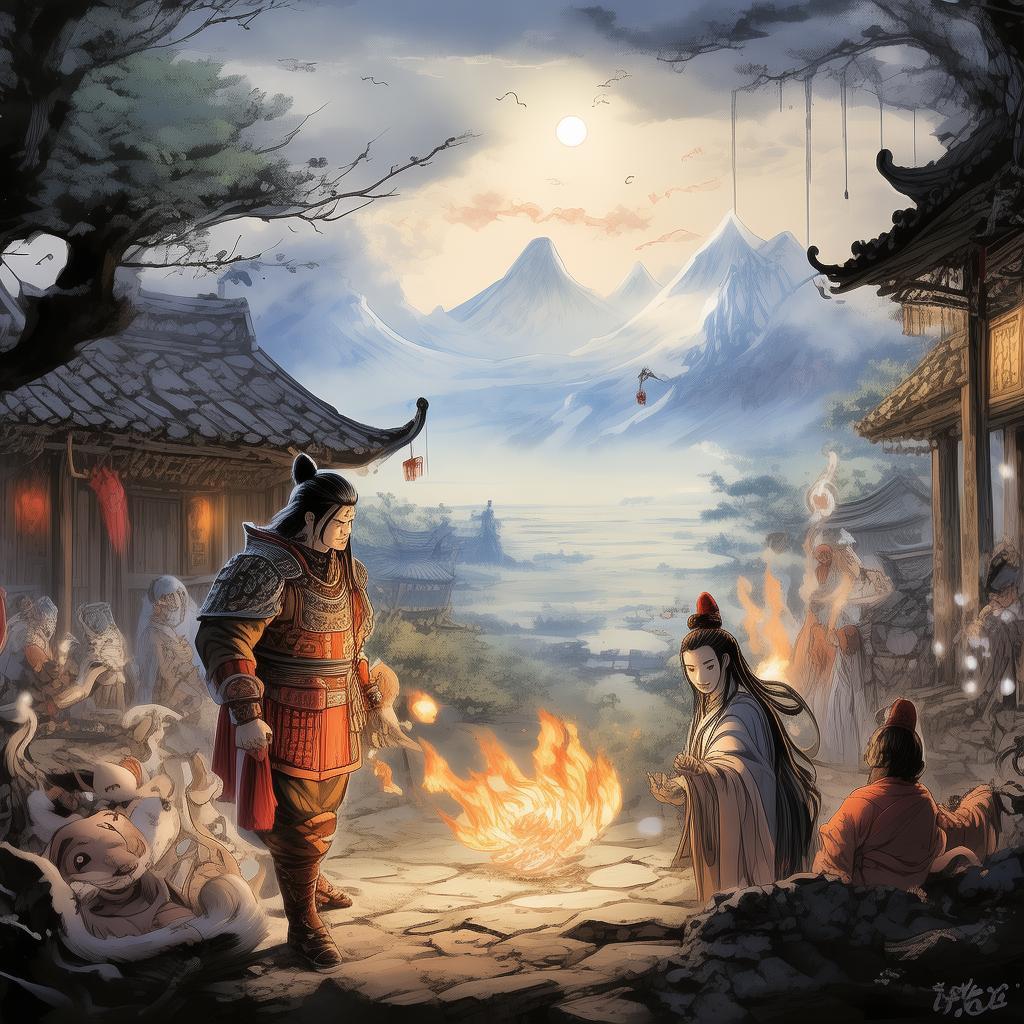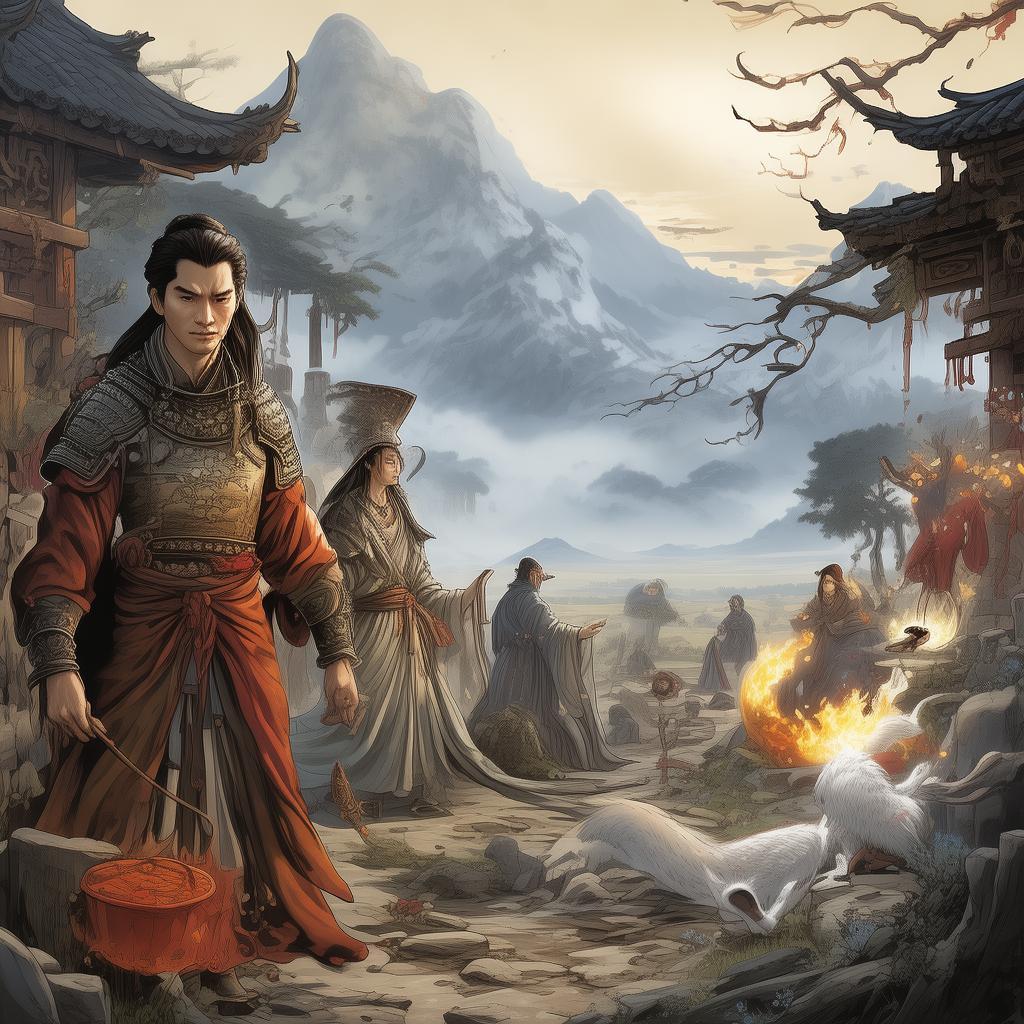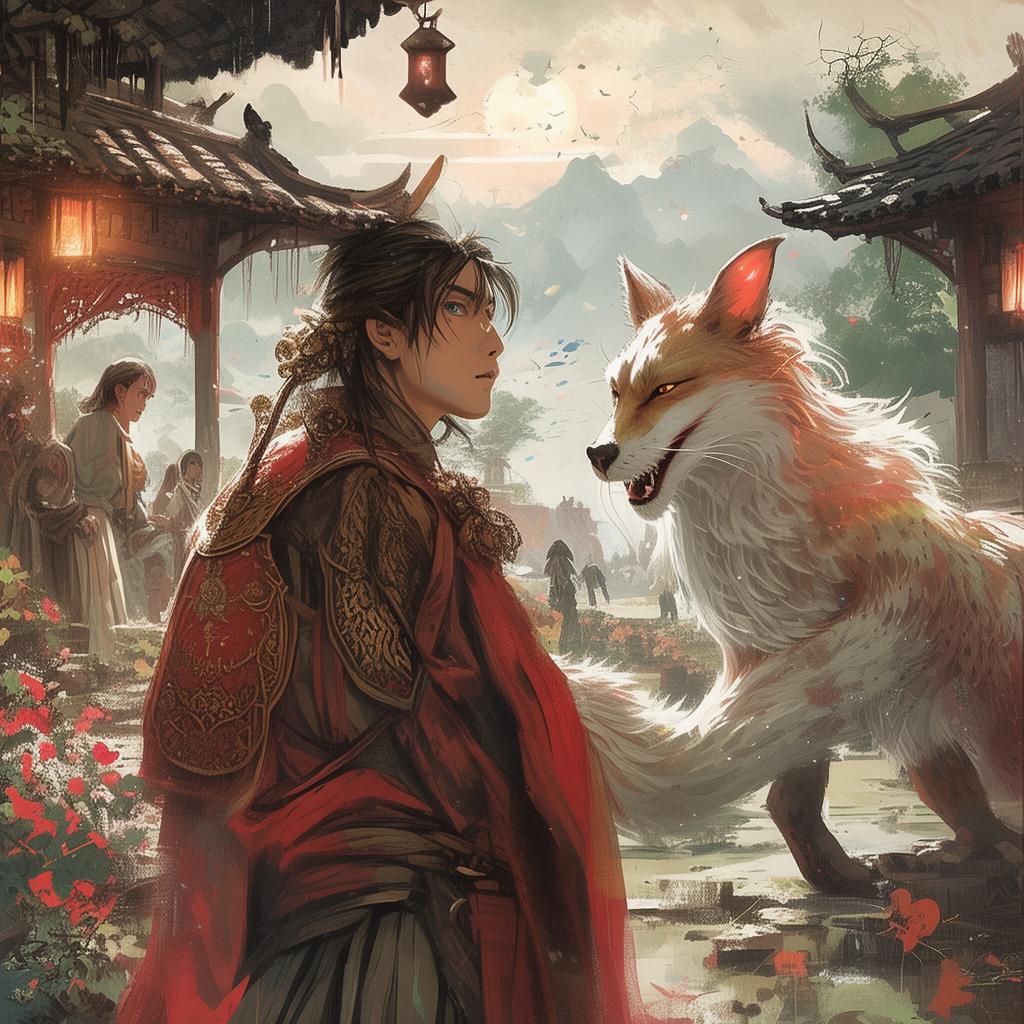Whispers of the Silk Road: A Gothic Tale of Betrayal and Empires
In the heart of the Silk Road, where caravans of spices and silks traveled under the watchful eyes of the moon, there lay a city shrouded in whispers and shadows. The city was a tapestry of cultures, a melting pot of empires, and its people were as diverse as the spices that passed through its gates. Among them was a young merchant named Li, whose life was about to unravel in ways he could never have imagined.
Li was known for his keen eye for trade and his unyielding spirit. He had traveled the length of the Silk Road, from the bustling bazaars of Samarkand to the desolate sands of the Taklamakan Desert. His latest venture was to secure a rare and valuable silk, the "Silk of the Fire," said to be woven from the threads of serpents and imbued with the power of the sun.
As Li approached the city of Dunhuang, he felt a strange premonition, a sense of danger lurking in the air. The city was famous for its Mogao Caves, where ancient Buddhist scriptures were preserved, and for the vibrant markets that were the heart of the Silk Road trade. Little did Li know that his arrival would coincide with a time of great turmoil and hidden agendas.
One evening, as Li settled into a modest inn, he was approached by a mysterious woman named Aisha. Her eyes held a depth that spoke of many secrets, and her voice was a whisper that seemed to carry the weight of the world. She offered him a proposition: to deliver the Silk of the Fire to a secret buyer in exchange for a fortune beyond his wildest dreams.
Li, driven by curiosity and the promise of wealth, agreed. But as he ventured deeper into the city, he discovered that the Silk of the Fire was more than a mere artifact; it was a symbol of power, a key to unlocking ancient empires and their hidden treasures. The city was rife with intrigue, and Li found himself caught in a web of deceit, betrayal, and danger.
The innkeeper, an old man with a knowing smile, became Li's confidant. He spoke of the city's dark history, of emperors who had sought the Silk of the Fire to gain control over the Silk Road and, by extension, the world. The innkeeper warned Li that he was not alone in his quest; others were also seeking the silk, each with their own motives and their own shadowy allies.

Li's journey took him through the bustling markets, where merchants whispered of the silk's power and its allure. He met a band of nomads who spoke of ancient rituals and the spirits that guarded the Silk of the Fire. As he delved deeper, he discovered that the silk was not just a physical object but a living entity, bound to the very essence of the Silk Road itself.
The climax of Li's adventure came when he confronted the true mastermind behind the hunt for the Silk of the Fire: a powerful and ruthless emperor who sought to use the silk to conquer the known world. In a dramatic showdown, Li must choose between his own survival and the fate of the Silk Road itself.
The ending of Li's tale is as mysterious as its beginning. He vanishes into the night, leaving behind a trail of questions and a city that is forever changed. The Silk of the Fire, it seems, has claimed another soul, and the whispers of the Silk Road continue to echo with tales of its power and its danger.
(Whispers of the Silk Road: A Gothic Tale of Betrayal and Empires) tells a story of ambition, greed, and the enduring power of secrets. It is a tale that will captivate readers with its suspenseful plot and emotional depth, leaving them pondering the true cost of power and the price of ambition.
✨ Original Statement ✨
All articles published on this website (including but not limited to text, images, videos, and other content) are original or authorized for reposting and are protected by relevant laws. Without the explicit written permission of this website, no individual or organization may copy, modify, repost, or use the content for commercial purposes.
If you need to quote or cooperate, please contact this site for authorization. We reserve the right to pursue legal responsibility for any unauthorized use.
Hereby declared.









